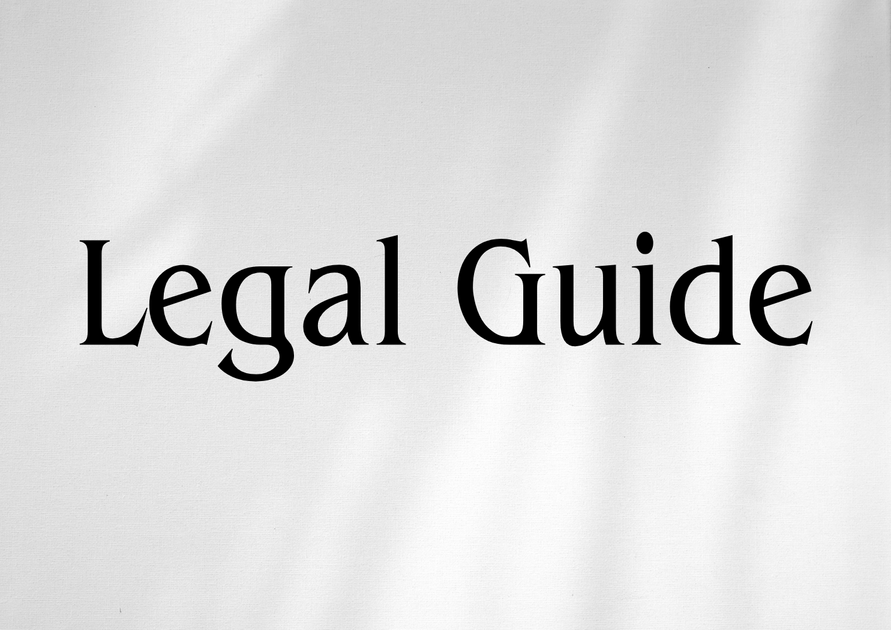Introduction: Arbitration in the Dynamic UAE Legal Landscape
Arbitration has become a cornerstone of dispute resolution for both domestic and international businesses operating in the United Arab Emirates (UAE). Given the UAE’s strategic role as a global business hub and its increasing alignment with international legal standards, recent amendments and ongoing reforms in arbitral procedures have captured the attention of stakeholders across industries. The release of updated arbitration regulations and refinements in the process of appointing arbitrators, particularly the changes introduced by Federal Law No. 6 of 2018 (UAE Arbitration Law) and its subsequent amendments up to 2025, have significantly shaped the landscape for dispute resolution. These legal updates, derived from sources such as the Federal Legal Gazette and official guidance from the UAE Ministry of Justice, present crucial considerations for executives, legal professionals, human resource managers, and corporate decision-makers seeking to minimize risk and reinforce contractual stability.
As businesses become more complex and cross-border disputes more frequent, understanding the procedural intricacies of arbitration and how arbitrators are appointed is vital. This article analyses the latest legal framework governing arbitration procedures in the UAE, explores practical applications, and provides actionable guidance on compliance and best practices. The insights below are crafted to help commercial entities, in-house counsel, and legal practitioners navigate these transformative legal developments in 2025 and beyond.
Table of Contents
Legal Framework Governing Arbitration in the UAE
The Growing Significance of Arbitration in the UAE
Step-by-Step Analysis of the Arbitration Procedure
Appointment of Arbitrators: Criteria and Process
Practical Insights: Avoiding Common Pitfalls
Risks of Non-Compliance and Effective Strategies
Case Studies and Hypothetical Scenarios
Comparative Analysis: Old vs. New Arbitration Laws
Best Practices and Forward-Looking Recommendations
Conclusion: Future Trends and the Path Forward
Legal Framework Governing Arbitration in the UAE
The Evolution of Arbitration Laws
The legal basis for arbitration in the UAE is primarily established by Federal Law No. 6 of 2018 on Arbitration (the “UAE Arbitration Law”). This law was a major legislative leap, aligning the UAE’s arbitration framework more closely with the UNCITRAL Model Law and international standards. Important updates in 2025, as seen in the latest Federal Legal Gazette publications and Cabinet Resolutions, have further clarified procedures and increased institutional efficiency, aiming to enhance credibility and enforceability of arbitral awards.
Key UAE institutions governing arbitration include:
- Dubai International Arbitration Centre (DIAC)
- Abu Dhabi Commercial Conciliation & Arbitration Centre (ADCCAC)
- Sharjah International Commercial Arbitration Centre
- The DIFC-LCIA Arbitration Centre (prior to its consolidation with DIAC)
Critical Sources and Amendments
- Federal Law No. 6 of 2018 (UAE Arbitration Law)
- Cabinet Resolution No. 57 of 2018 concerning the Federal Civil Procedures Law
- Ministerial Decision No. 972 of 2020 (on Arbitration Institution Regulation)
- Various institutional arbitration rules, e.g., DIAC Rules (updated 2022)
Scope of Application
Arbitration under UAE law applies to international and domestic commercial disputes, construction contracts, real estate, financial services, and increasingly, employment and shareholder agreements. Enforcement of arbitral awards continues to be a priority, with dedicated provisions ensuring UAE court recognition and expedited procedures.
The Growing Significance of Arbitration in the UAE
Arbitration’s prominence in the UAE stems from its neutrality, confidentiality, expertise in panel selection, and enforceability of awards across local and international jurisdictions. Recent economic diversification, the proliferation of joint ventures, and cross-border transactions have made arbitration preferable to litigation for many businesses. Notably, the UAE’s accession to the New York Convention (1958) and the modernization of domestic arbitration legislation have expedited the recognition of foreign arbitral awards, further boosting investor confidence.
Step-by-Step Analysis of the Arbitration Procedure in the UAE
Commencement of Arbitration
Arbitration typically commences by serving a formal notice of arbitration, referencing the relevant clause in the contract. Parties must ensure the clause is enforceable under the UAE Arbitration Law, which outlines the minimum requirements—such as express agreement, written form, and sufficiently defined dispute scope.
Constitution of the Arbitral Tribunal
The procedure for the constitution of the tribunal—single arbitrator or a panel—must adhere to contractual stipulations or, in absence thereof, to the procedural rules of the chosen arbitration institution or default rules under Federal Law No. 6 of 2018. The law allows for flexibility but requires prompt appointment to prevent undue delay.
Key Procedural Milestones
- Submission of Statements of Claim and Defence: After tribunal formation, parties submit their statements detailing their respective claims and responses.
- Preliminary Meetings: The tribunal may set a procedural timetable, address preliminary issues, and clarify points of law or fact.
- Evidence and Hearings: The process for presenting written evidence, expert testimony, and oral hearings is either predetermined by the rules or adjusted at the tribunal’s discretion, provided both parties are treated equally.
- Award Issuance: The tribunal must issue a written, signed award, outlining reasons for its decision and addressing all issues submitted for determination.
Suggested Visual: Arbitration Procedure Flow Diagram
We recommend including a flow diagram here showing: Agreement to Arbitration → Commencement → Tribunal Constitution → Statements Submission → Hearing/Evidence → Award Issuance.
Appointment of Arbitrators: Criteria and Process
Arbitrator Qualifications and Disqualifications
Federal Law No. 6 of 2018 (as clarified in the 2022 and 2025 ministerial guidelines) sets forth clear eligibility requirements for arbitrators. Essential criteria include:
- Full legal capacity and absence of criminal convictions related to honesty or integrity
- No conflicting interests or relationships with the parties
- Absence of bias or partiality (subject to challenge by parties)
- Not being an employee of parties to the dispute
- Professional experience (commonly required by arbitration institutions)
Arbitrator Appointment Process
A. Ad Hoc Arbitration
Where the arbitration is ad hoc, the appointment process follows the terms of the arbitration agreement, or in the event of disagreement, each party nominates one arbitrator, and the two chosen arbitrators appoint the chairperson. If parties fail to agree or delay unreasonably, the UAE court of competent jurisdiction (e.g., as designated by the Federal Civil Procedures Law or the relevant free zone court) intervenes to make the necessary appointment.
B. Institutional Arbitration
When conducted under institutional rules (e.g., DIAC, ADCCAC), the institution administers the appointment process as per its rules. Recent updates emphasize transparency and efficiency, reducing appointment timeframes and enhancing party autonomy in nominating arbitrators, subject to approval by the institution council.
Removal and Challenge of Arbitrators
The law provides explicit procedures for challenging arbitrators for lack of independence, breach of duty, or any circumstances giving rise to justifiable doubts about impartiality. Replacement procedures are likewise streamlined, ensuring arbitration continues without unnecessary delays.
Suggested Visual: Arbitrator Appointment Process Chart
Include a stepwise chart indicating: Party Nomination → Institution Review → Potential Court Intervention (if impasse) → Completion of Tribunal Formation.
Practical Insights: Avoiding Common Pitfalls in Arbitration Agreements
Ensuring Valid Arbitration Clauses
- Use precise, unambiguous language in arbitration clauses. Vague or conflicting terms can render the clause unenforceable.
- Specify seat (legal place) of arbitration, language, and applicable rules to avoid jurisdictional issues.
- Regularly review and update arbitration provisions, especially in the wake of legal reforms (use latest DIAC or ICC model clauses if appropriate).
Pre-Appointment Due Diligence
- Vet potential arbitrators’ credentials, prior experience, and impartiality, especially for complex technical disputes.
- Consider diversity and neutrality: Multinational contracts may benefit from at least one arbitrator of a different nationality than the parties.
- Negotiate appropriate mechanisms for replacing an arbitrator in the event of resignation or challenge to avoid interruptions.
Suggested Visual: Compliance Checklist
Insert a compliance checklist table to review validity and enforceability of arbitration provisions (see sample below).
| Checklist Element | Compliant? | Remarks |
|---|---|---|
| Written Arbitration Clause | ||
| Clearly Named Institution | ||
| Specified Seat | ||
| Language of Arbitration | ||
| Rules of Procedure |
Risks of Non-Compliance and Effective Strategies
Key Risks
- Ineffective Arbitration Clauses: Ambiguous or outdated clauses may be challenged or set aside by UAE courts.
- Procedural Deficiencies: Failing to follow mandatory appointment procedures can lead to annulment of awards.
- Lack of Proper Arbitrator Disclosure: Non-disclosure of conflicts results in loss of trust and potential unenforceability of awards.
- Delay in Tribunal Constitution: Prolonged delays expose parties to court intervention, potentially contrary to their initial intentions.
Compliance Strategies
- Regular Legal Audits: Consistently review and upgrade standard arbitration clauses in contracts to conform with current law (UAE Arbitration Law, DIAC Rules 2022, etc.).
- Engage Independent Legal Advice: Especially for cross-border or high-value contracts to ensure alignment with the latest legal standards.
- Preferred Panels: Consider agreeing to institutional lists or panels for swift and reputable appointments where appropriate.
Suggested Visual: Penalty Comparison Table
| Type of Breach | Old Law Penalties | UAE Law 2025 Penalties | Notes |
|---|---|---|---|
| Improper Arbitrator Appointment | Court Annulment Possible | Annulment and Potential Financial Consequences | Stricter review powers under new law |
| Invalid Arbitration Agreement | Refusal to Enforce Award | Refusal + Possible Damages for Procedural Abuse | Updated in 2025 amendments |
Case Studies and Hypothetical Scenarios
Case Study 1: Construction Joint Venture Dispute
Scenario: A UAE-based construction JV includes an arbitration clause referencing DIAC Rules. A dispute ensues over delays and payment schedules. During arbitrator appointment, one party refuses to cooperate, claiming a conflict of interest with proposed arbitrators.
Outcome: Under the 2025 updates, DIAC promptly appoints a neutral arbitrator after verifying conflicts via a transparent disclosure process. The tribunal is constituted within statutory timeframes, obviating the need for court intervention, and the dispute proceeds efficiently.
Case Study 2: Enforceability Challenge based on Clause Ambiguity
Scenario: A finance agreement contains an arbitration clause lacking a clear seat or governing law. When a dispute arises, one party challenges the arbitration’s validity in the UAE courts.
Outcome: The UAE court, applying 2025 amendments, upholds the arbitration by interpreting the parties’ intentions but issues a warning regarding ambiguous drafting. The case emphasizes the commercial risks of imprecise arbitration provisions.
Lessons Learned
- Institutional rules safeguard arbitration, but precise clause drafting is fundamental.
- Failure to act promptly in appointing arbitrators can shift control from parties to courts or institutions, affecting outcome predictability.
Suggested Visual: Timeline of Key Events in Each Case
Comparative Analysis: Old vs. New Arbitration Laws in the UAE
The table below summarizes significant differences between pre-2018 (old regime) and post-2018 (current with 2025 updates) UAE arbitration laws, with emphasis on the appointment of arbitrators and procedural safeguards.
| Aspect | Old Law (Pre-2018) | New Law & 2025 Updates |
|---|---|---|
| Arbitration Agreement Requirement | No model law alignment, less emphasis on writing | Mandatory written agreement, alignment with UNCITRAL Model Law |
| Appointment of Arbitrators | Ad hoc, little court or institutional intervention | Flexibility, expedited court/institution recovery of failed appointments |
| Impartiality of Arbitrators | No explicit disclosure requirements | Mandatory disclosure, conflict checks, challenge protection |
| Rules on Hearings and Evidence | Rigid procedures | Flexible, party autonomy prioritized, technologically enabled (e-hearings) |
| Enforcement of Awards | Challenging enforcement, limited recognition of foreign awards | Expedited enforcement, New York Convention fully integrated |
Best Practices and Forward-Looking Recommendations
- Integrate updates into all template agreements and procurement contracts to ensure enforceability under UAE Arbitration Law 2025.
- Provide compliance training for legal and HR teams on new procedural requirements and appointment criteria for arbitrators.
- Maintain a vetted list of reputable arbitrators familiar with UAE law and sector-specific intricacies.
- Leverage institutional arbitration rules for more predictable appointment, challenging, and replacement of arbitrators.
- Monitor Federal Legal Gazette and Ministry of Justice updates for ongoing amendments—arbitration law is evolving rapidly.
Conclusion: Future Trends and the Path Forward for UAE Businesses
Recent legislative updates have cemented the UAE’s reputation as a leading international arbitration venue. The improvements made under the latest Federal Law No. 6 of 2018, the adoption of international best practices, and the progressive refinements up to 2025 demonstrate the government’s commitment to procedural fairness, commercial certainty, and speedy dispute resolution. For businesses, it is vital to stay ahead by regularly updating arbitration agreements, relying on qualified arbitrators, and embracing institutional support to minimize legal risk. With arbitration-related compliance playing an ever-increasing role in contract management, organizations can best protect their interests by remaining proactive and seeking professional legal guidance. As the UAE continues to attract cross-border investment and innovation, mastery of arbitration procedures and the strategic appointment of arbitrators will remain an indispensable component of the modern corporate legal strategy.



